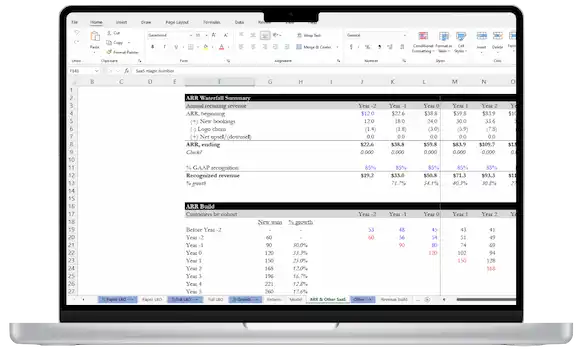One of the most common interview questions asked during your interviews for a role in investment banking will be, “why investment banking?”
If you want to ace this interview question, there are some things to remember during your answer.
However, before we get into those considerations, first let’s look at the benefits and challenges of a career in investment banking.
Benefits of investment banking career
Financial reward
Investment bankers make approximately $66,000 annually, but this varies widely by firm and region.
Work perks may appeal to you as well as money. For example, investment bankers have several benefits besides high pay – including meals, travel, and high status (!!).
This might be pleasant if you’re well-compensated through pay, bonuses, perks, and stock ownership.
Steep learning curve
I used to say that there is no job that gives so much responsibility to young professionals from such a young age. From Day 1, you are getting to contribute to multi-billion dollar deals. That’s pretty cool!
And, most importantly, it provides lots of opportunity for growth and learning! You essentially get a two year bootcamp in:
- Financial modeling
- Quantitative analysis
- Communication via slides
- How to be a professional
- And many, many other lessons
Work with ambitious and interesting people
Investment banking offers opportunities for ambitious people, so ambitious and interesting people go into it.
On the job, the people you’ll meet and work with will be knowledgeable and passionate. Being in a workplace with like-minded people is one of the most rewarding parts of banking!
Cohort of young people
An underrated advantage to starting an investment banking career is that you get to make friends and bond with a whole cohort of people your age who you start working with at the same time (e.g. analyst or associate class).
I made some of my best friends in life in investment banking. This was truly one of the most enduring and best parts of my experience in investment banking.
I know many others who say the same.
Exit opportunities
This is one of the biggest perks of the “two year bootcamp” that is investment banking. Many employers in all kinds of industries appreciate the training and learning that comes in investment banking from an early age.
It’s not uncommon for investment banking hires to have great exit opportunities in:
- Private equity
- Growth equity
- Hedge fund
- Venture capital
- Software & fintech
- Startups generally
- Corporate development
- And many other careers

- 24 lessons
- 6+ video hours
- Expert instructor
ONLINE COURSE
Assess Business Models Like An Investor
Designed for aspiring private equity, growth, or venture investors
Drawbacks of investment banking career
Every job has downsides. Investment banking is rewarding, but it requires sacrifice.
High workload
Though it’s gotten more reasonable over the years for junior hires, let’s face it, investment banking is still quite demanding. This means work weeks that far exceed the 40-hour workweek (e.g. 70 or 80 hours per week).
Inability to plan
I’ve always said that the hardest part of my own investment banking experience was not the long hours, but rather the unpredictability, which means an inability to plan.
In some ways, I was happiest when I was working long hours because I gave up on the hope of trying to make social or life plans. Whenever I had a modicum of free time at work, I’d make a plan, which often was disrupted (and led to disappointment).
In some ways, though, this is what investment bankers get paid to do – be available at all times and prioritize work above all (most) else.
Client service
As an investment bank, you provide a service to your clients (e.g. debt or equity issuance, M&A advice, etc.).
Since most banks are staffed with smart and highly competent people, it’s difficult to standout to your clients (who often have many banks competing for their business).
That means that to standout to your clients you often need to be ready at the drop of a hat and you need to do work that may not lead to any tangible outcome (e.g. a pitch that is low likelihood of resulting in a deal).
After the thrill of working on your first couple pitches, it can start to wear you down to work on things that are purely for “client service.”
Answering the “why investment banking” interview question
Some generic themes to draw on for your answer to “Why Investment Banking” could include:
- Fast-paced environment
- Exposure to high profile transactions
- Surround myself with intelligent and motivated people
- Valuation & financial modeling work
- Steep learning curve
- Passion & love for finance
While these answers are not inherently wrong, you should opt for a more stand-out reply that will distinguish you from other applicants.
However, the KEY to answering this question is making the answer authentic to you. Further, you need to make sure you answer what the interviewer is really trying to figure out, which is:
- Are you ACTUALLY interested in this job?
- Have you done your homework about what this job is and what it entails?
- Have you wanted to do this job for awhile, or is this a new thing for you (more likely to quit)?
To help you craft the perfect answer for you, I recommend the following formula:
How your interest in IB started + Excitement for IB’s benefits + Awareness of what the job’s challenges
In each of these components, you should also try to combine your answer with experiences in your background to make it more believable and impactful.
Example “why investment banking” answer
Using the formula above, here’s a sample answer to “why investment banking”:
I’ve been extremely excited about since my sophomore year, when I became the VP of the Finance Club on campus. Since then, I’ve tried to learn as much as I can about finance by not only getting more involved in the club, but also taking finance courses and doing reading on my own. (I’d be happy to share more about what I’ve taken.) I’m excited to take my valuation and corporate finance learning to the next level by jumping into investment banking.
I also think it’ll be an excellent environment to learn because it’s fast paced and analysts get a lot of responsibility from Day 1. I played varsity basketball in high school and in college, so I love opportunities to take on leadership and responsibility in teams.
Finally, I know that investment banking can be demanding and long hours. I’m sure it’ll be challenging at times, but I’m actually looking forward to a challenging work environment, especially as a younger professional. As I said, I want to learn as much as possible as quickly as possible, so I’m excited for that part too.
Things to avoid in answering “why investment banking”
In your answer, you should be sure to avoid the following:
- Make lots of money
- Attractive exit options
While these indeed may be attractive, by including these in your answer you are showing your interviewer you lack the “finesse” or situational awareness to avoid this landmine.


 Break Into Growth Equity
Break Into Growth Equity

